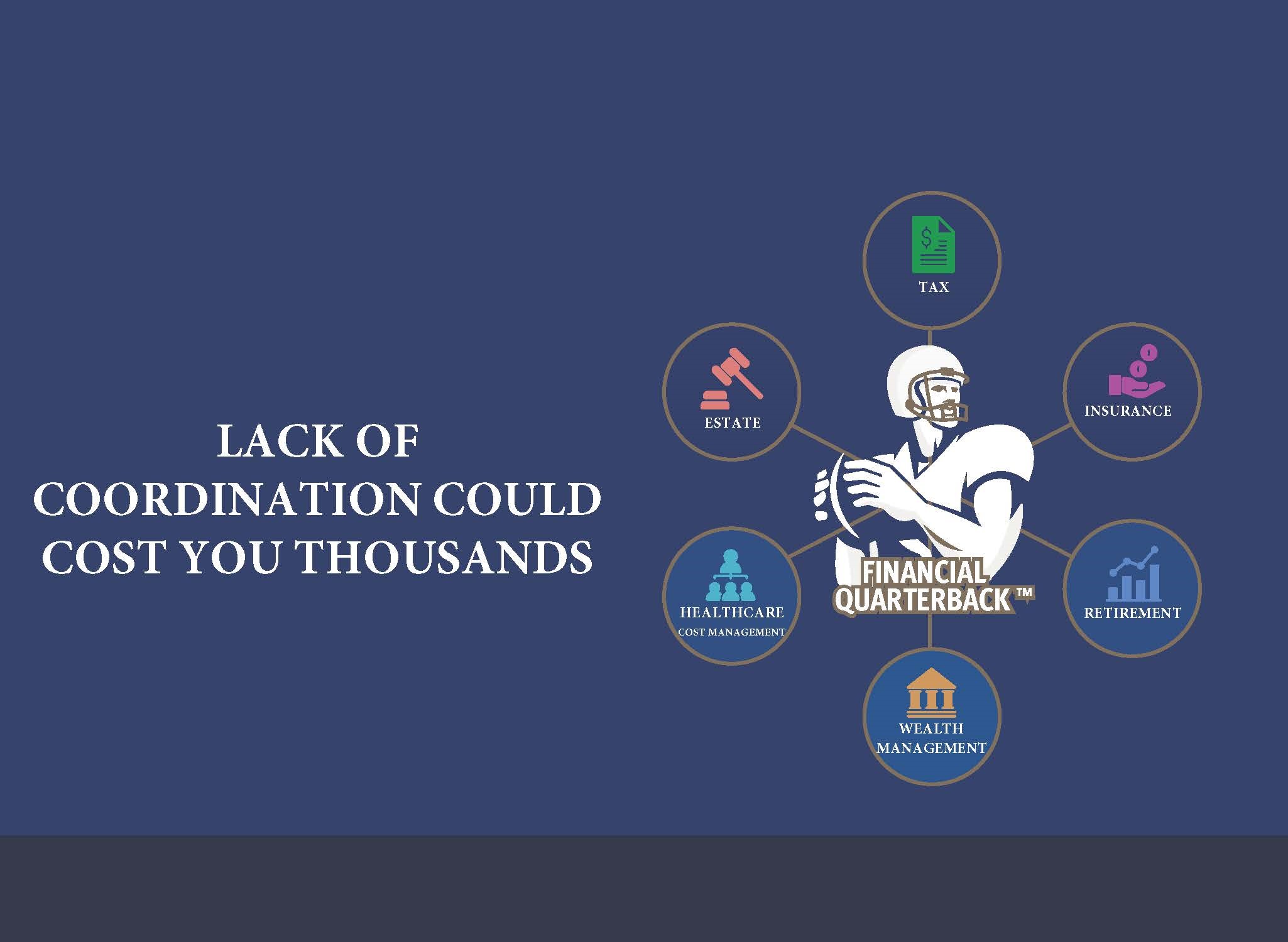Month: August 2018
What is a Financial Quarterback, and Why Do I Need One?
In our increasingly complex financial world, it’s important to discuss the need to have an overall coordinated approach when it comes to financial affairs. Think of 11 players going onto the football field, and hiking the ball without taking the time to get into a huddle and have the quarterback call the play. The chances of these guys getting into the end zone are slim. Without overall coordination of your financial affairs, getting into the financial end zone may be difficult for you as well. Most people don’t think of all their advisors as a team, but it’s important to recognize that most of us already have a financial team; we are getting financial advice from a variety of sources. Your financial team is comprised of your different insurance agents, your CPA or tax preparer, your bank, any investment advisors with whom you are working, and your estate planning attorney. Everyone has a financial team, and they all need a Financial Quarterback. Let’s look at some potential pitfalls of not having a Financial Quarterback. What happens if you take money out of an investment and by doing so you have income to report? Will the receipt of that income trigger taxation on your Social Security? Will it increase your Medicare premiums? You had better know the answer to that prior to making the change. If you have a good financial quarterback, you will know the outcome before you make the change. If not, you may be surprised when you go to file
5 Ways to Benefit from Rising Interest Rates
After the most recent interest rate increase in June, the Federal Reserve has signaled that it is likely to continue raising interest rates this year, possibly even as often as once per quarter. In fact, fear that interest rates may rise faster than previously predicted has caused some volatility in the markets. Bond investors have been concerned about this for years, but this time it looks like it’s going to happen. Warren Buffet said, in his latest shareholder letter, that “Often, high-grade bonds in an investment portfolio increase its risk.” That can be true, but then, we don’t all have Warren Buffet’s net worth to fall back on! That may have you wondering – how can I take advantage of rising interest rates? And, generally speaking, bond yields go down as interest rates increase. But remember, while bonds may decline in value, their moves tend to be smaller compared to other securities. Many investors are flooding into U.S. Treasury bonds, making the so-called flight to quality, because right now, the U.S. looks better than other economies worldwide. This means that medium and longer-term bonds – whose rates are often more influenced by investor expectations than anything else – are likely to be most affected. But, there are many strategies you can use to manage your bond portfolio in a rising interest rate environment. For Treasury inflation-protected securities, or TIPS, the Treasury Department uses the Consumer




 Virteom
Virteom